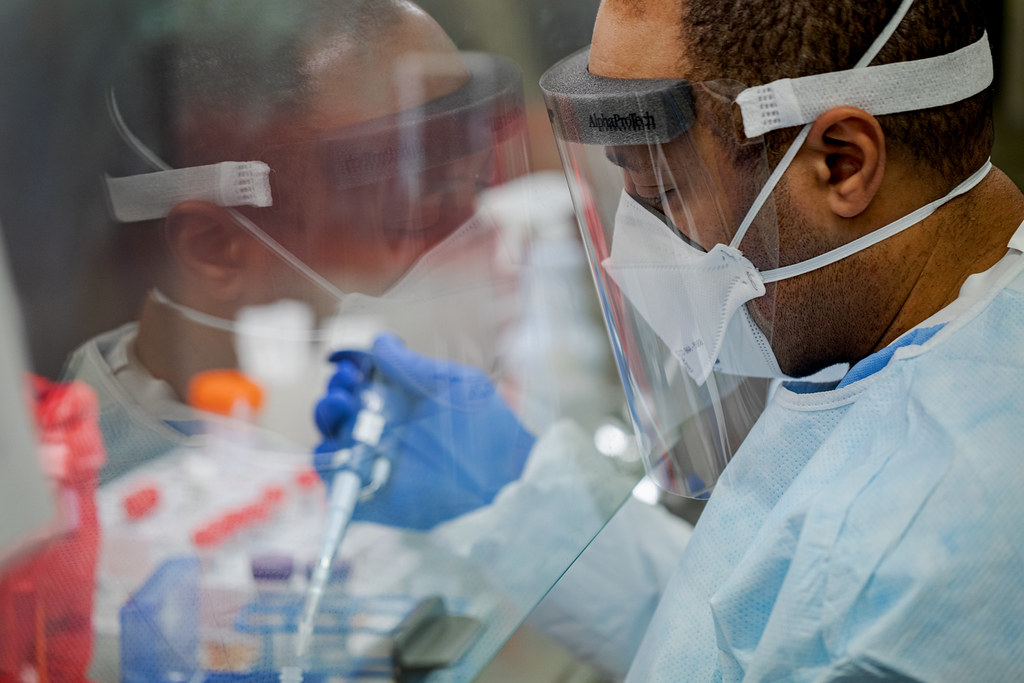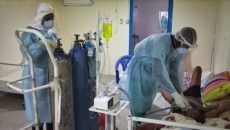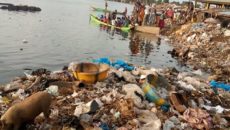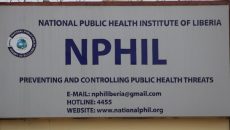ActionAid Liberia urges strengthening a national plan for COVID-19 to be comprehensive, gender-responsive, and inclusive to prevent spread and minimize the impact.
The ongoing novel coronavirus outbreak, COVID-19, has reached a global pandemic. With two reported cases in Liberia, a more robust and comprehensive response is needed to adequately prepare communities to prevent the spread of the virus, mitigate its socio-economic impact, and ultimately save lives.
The ongoing novel coronavirus outbreak has reached a global pandemic with over 175,000 cases and with more than 6,600 deaths across 150 countries. The virus has spread across Africa with 125 cases reported in 30 countries, most recently in Liberia, with the first confirmed case as of March 16, 2020.
There are legitimate concerns regarding the impact of COVID-19 on Liberia given the status of our health system and our previous experience with Ebola. In 2014, the Ebola outbreak marked one of the greatest public health challenges the region had encountered, affecting 28,600 persons and causing 11,300 deaths.
Ebola was largely seen at first as a public health issue as socio-economic disparities were not considered immediately – i.e. poor health infrastructure, access to water and sanitation, high poverty, cultural beliefs and reliance on cross border trade. Consequently, Liberia became the epicenter of the outbreak with over 4,000 deaths.
Since 2016, Liberia has been Ebola-free. Community engagement and leadership, behavior change around handwashing and social distancing, and strong coordination contributed to the successful containment of the Ebola outbreak in Liberia.
However, concerns have lingered over Liberia’s preparedness for the resurgence of Ebola and other epidemics. There is no cure for COVID-19 and vaccines are projected to be available at the earliest, in 12-18 months. The fatality rate for COVID-19 is an average of 2-4 percent of those infected, with a higher risk for the elderly and immuno-compromised persons. Hence, preventing and controlling its spread will be important to combating the disease in Liberia.
Thus far, the National Public Health Institute of Liberia and the Ministry of Health have demonstrated considerable forethought in proactively engaging in the prevention and detection of cases at ports of entry.
Lessons learned from Ebola showed us that disease outbreaks in our context not only affect the public health system but also exacerbate existing developmental challenges including access to basic education and health services, food security and the local economy.
As such, our national containment efforts for COVID-19 requires a more comprehensive and robust response to ensure that appropriate measures are in place to not only prevent the spread of the disease but adequately prepare communities to minimize the spread of the virus and mitigate its socio-economic impact in Liberia. Critical issues should include:
Gender Responsive and Inclusive Plan. Strategic inclusion of women and vulnerable groups such as persons with disabilities, persons living HIV/AIDS, and other marginalized communities is crucial to the prevention of the disease. For women, in particular, the caregiver role they perform in homes and communities places them at an increased risk of contracting the virus but also as important stakeholders in prevention efforts.
Moreover, vulnerable communities, already marginalized, are further disadvantaged during an epidemic. Deliberate outreach and partnerships with these groups in the development, implementation, and monitoring of the national plan will be effective in aligning the needs of the communities they represent and risk reduction and resilience measures.
Timely and culturally sensitive information and communications for prevention and containment. This entails clear, consistent, and timely information about the disease, symptoms, risk factors, testing centers, prevention methods (basic handwashing and social distancing) and services available to build awareness and confidence.
This is also important to help mitigate disinformation and provide reassurance to the public on the government’s plan and actions. Social mobilization should also aim to promote communities’ ownership of prevention and infection control mechanisms including contract tracing. This includes linking with existing and trusted community structures (i.e. women and youth groups, community leaders, local authorities, and local businesses) and ensuring messages are accessible to all literacy levels.
Ensure Health Workers’ Safety and Incentives to Boost Morale. Healthcare workers are central to the prevention and control of COVID-19. They ensure that the virus does not spread from one patient to another, provide treatment and care and support while building trust and confidence in the national response.
The national COVID-19 response should support health workers with the appropriate training, and ensure that logistical support (especially for monitoring) and prevention supplies (gloves, PPEs, etc.) are available and accessible so that health workers (doctors, nurses, and other staff working in the health sector) can be able to effectively undertake their duties. This also extends to cleaning staff, airport staff, and staff at border points. Incentives such as hazardous pay can also be essential to maintaining healthcare workers’ morale.
The Recognition of Rights to Basic Social Services and Protection. Access to food, sanitation and hygiene, work/income, and health care are basic human rights. Social protection programs such as cash transfers should target high need communities and groups (i.e. women as caregivers, orphaned children, high food insecure communities, etc.).
The government must also proactively engage with the private sector to plan for and ensure workers’ rights such as paid leave and that employers exercise a duty of care in promoting the safety and security of their employees. In addition, the government should commit to upholding the basic rights of patients and communities undergoing quarantines and containment measures.
Reintroduce Safe School Protocols for the Education System. The Safe Schools Protocols instituted during Ebola supported the establishment of handwashing stations, structures (i.e. school safety committees and fever monitoring teams) and other infection control materials. These protocols with adequate support to schools around training, referral systems, and supplies to promote basic handwashing and hygiene practices can safeguard access to education.
There should be considerations for addressing the long-term impact of school closures on the current academic year to not further affect students. This includes remote/distance learning, creative programs such as radio programs, and home support to enable children to continue to receive education in partnerships with teachers and education stakeholders.
Integration of Anti-SGBV Response and Access to Justice. The national plan should integrate access to justice and anti-sexual and gender-based violence in the response, understanding that rape and other forms of sexual and gender-based violence continue during outbreaks. This includes anti-domestic violence and rape messaging in social mobilization efforts; putting in place protocols to ensure cases reported during a COVID-19 outbreak are managed properly; and increased resources to one-stop centers and safe homes (staffing, supplies, and funding) to support survivors.
Strengthen Food Security and Safeguard Access to Non-Food Commodities. Given our high reliance on importing food and essential commodities, the government should implement measures that include active engagement with food importers as well as with local farmers and producers to ensure a steady supply of basic commodities. The measures should also focus on strengthening existing preventive mechanisms to guarantee cross border trade. These measures are not only applicable to disease outbreak but also to mitigate COVID-19’s impact on the global economy.
Anticipate and Plan for Recovery and Reintegration. Look beyond prevention to recovery and reintegration issues for communities affected by COVID-19 including survivors, women, orphans, and other vulnerable children, quarantined communities and other marginalized populations. This can include developing community-led interventions to address stigma, mental health and psychosocial needs of survivors, orphans, affected families and strengthening county systems (health, education, gender, etc.) to manage the recovery and reintegration process for survivors and affected families.
While COVID-19 is a novel disease, our experience with Ebola has taught us that adequate preparedness and comprehensive response coupled with strong community engagement can help to prevent the spread of disease in Liberia and the loss of lives. Building on lessons learned from Ebola will enable us to contain COVID-19 and ultimately save lives.
Featured photo courtesy of the Office of Governor Tom Wolf



